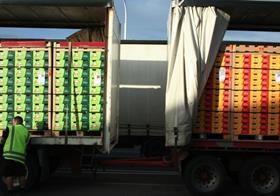
The risk of higher costs from post-Brexit tariffs would hit the food and drink sector the hardest, potentially causing a “debilitating wave” of rising prices, according to a new report.
Researchers Retail Economics and Squire Patton Boggs said a resort to the WTO tariff regime following a no-deal Brexit could add £7.8 billion to the cost of retail goods in the UK.
The joint initiative emphasized that the standard rate of tariffs that would apply to imports of EU food and drink is far higher than the rate for non-food goods, with duties for some meat and dairy products rising to 80%.
They added that to continue tariff-free trade in food and drink with Europe, the EU is likely to demand compliance with a wide range of non-trade regulations which may be difficult for the UK to accept.
Richard Lim, chief executive of Retail Economics, said: “Should the Government fail to agree a deal with the EU, the retail industry faces a debilitating wave of rising costs from import duties. Extensive research has been carried out which reveals an additional £7.8 billion could be added to the cost of retail goods should a hard Brexit scenario become a reality following a transition period.
“Retailers need to plan for a range of outcomes while feeding to Government their view of a viable trading framework post-Brexit. The clock is ticking for those needing to form actionable strategies in order to thrive in such times of uncertainty, or indeed, survive.”
Matthew Lewis, head of the Retail Industry Group at Squire Patton Boggs, added: “Our first Review, on the costs of sourcing products abroad, shows that no businesses will be unaffected, regardless of the outcome of the final trade negotiations. For all retailers in the UK now is the time to start scenario planning, to consider their contracts with suppliers, to assess risk-exposure to possible new compliance rules and customs controls and logistical delays, and to review how best to support staff and identify solutions for longer term recruitment.”
Food and Drink exposed to highest degree of risk according to the report. 72% of imports originate from the EU totalling around £30 billion in 2017. Some duties for meat and dairy products could be subject to tariffs up to 80%.






No comments yet